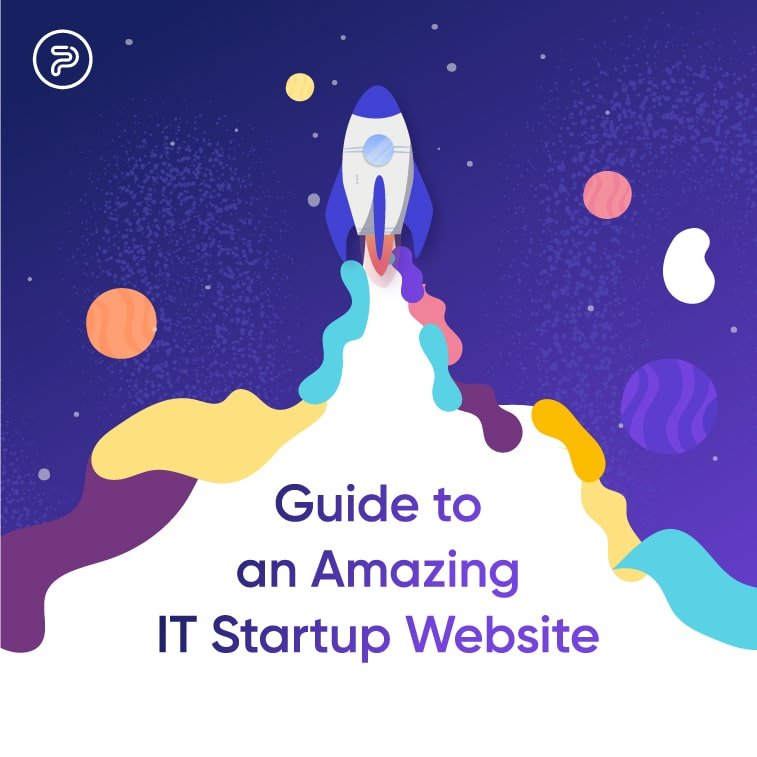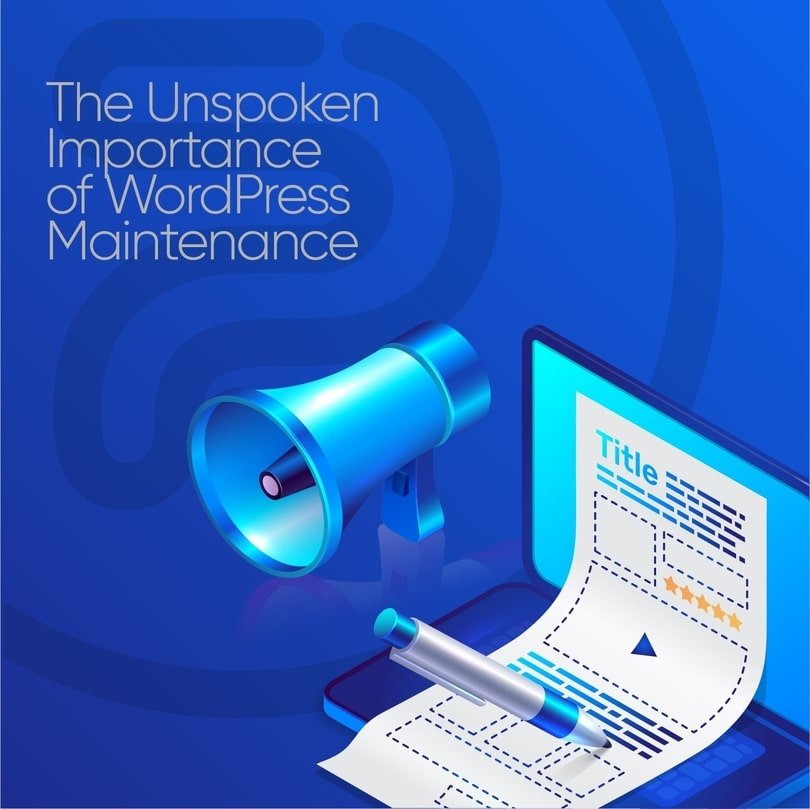Whether it's IT, a clothing brand, nutritional supplements, or heck, even plumbing services, you know that it's no longer feasible to run a proper business without having a solid web presence. People flock to the world wide web to research services, products, consume news, content, and even check brick-and-mortar store operating hours.
Having a website has become a must for nearly all different business types and IT companies are especially among those firms whose online presence is a truly crucial element to their success in their respective industry. Why? Well, think about an SEO company without a website. Or even worse ? think about one that you can’t find on Google.
For most businesses, a simple and well-designed platform can do the trick to stay afloat in the demanding business scene, however, IT companies oftentimes might need to go that one extra mile to evoke feelings of credibility and dominance when visitors land on their websites. And for startups, making a good first impression is even more crucial.
That being said, here is our step-by-step guide that will highlight all the essentials of a solid business website that will suit most startup firms’ needs.
Know the Purpose of Your Website
This may sound a bit dumb, but trust us, sometimes, future site owners will find it hard to answer even the most basic of questions effectively. Whether you are looking to create more of a website that only showcases some basic info about your company, or a robust, fully customized web app that’s built from scratch, you need to be straightforward with its purpose, and that should be clear to your visitors right away as well.
People who land on your address should figure out the fundamental goal of your business within seconds and that vision, that goal should be reinforced even more as your visitors browse your website.
This goal-driven approach should be evident and consistent across the board: from the overall design to content, visuals, and functionality, every part of your site should reinforce your business orientation, reflect on your products and services, and should work together to make your brand memorable.

Domain Name
Most business owners tend to overlook the importance of this feature even though it’s a crucial element of any good business site. It’s what you’ll share on your social channels, in your newsletter campaigns, and pretty much everywhere else. As such, you want something that’s easy to remember and to type in. Keep things short, and faithful to your brand.
Next, focus on TLD or top-level domain. You can go either with traditional options like the good old .com or you can go with something more flashy reflecting on location, type of business, and such (like .agency, for example). After selecting the above, you need to see whether your domain name is available and purchase it from a domain registrar.
You should also check copyrights at this point to see you’re not infringing on a name that’s already protected. If your domain name is already taken, you can try calling the company that’s using it and ask to purchase it from them or you can also opt for domain buying services.
Web Hosting
This is basically the server where all of your site’s data is being stored. As a startup, hosting your own site might be a bit far-fetched idea right off the bat financially, so, to save cash, you might want to select an external host.
If budget is one of your concerns, then you can take two different routes as far as hosting goes. You can either opt for a shared web host, where you will share the server with others, or opt for dedicated hosting (more expensive) where you will have your own private server and compete with other sites.
As an IT startup, if you want to stand out from the rest (i.e. your competition), dedicated hosting might be the route to take as it ensures better overall site performance and speed.
Lastly, you can also explore ?free? options that aren’t free for the company hosting your site. More often than not, these companies for place banner ads on your site and other methods to compensate for their free services.
Needless to say, hosting isn’t a one-time-only thing. As your business grows, you will find that you might need to change hosting plans, upgrade to a better package, or even work with several providers to handle your increased traffic and other related operations.
Build Your Pages The Right Way
You want your website to be a go-to resource option for your visitors, the center of your brand’s digital ecosystem, the cradle of your sales, and the crown jewel of your online presence. To pull that off, you want a comprehensive website with several pages that highlight dedicated aspects of your business. From having a detailed catalog of your services/products, you should also have a page for company updates, your blogs, and other vital business or company info. Remember, every page of your website should reinforce the primary goal of your business so properly placed Call to action buttons, like ?learn more?, ?call now?, or ?schedule an appointment? should be rather frequently scattered across the board.
Every business should have distinctive online features, however, as a rule of thumb, there are a few solid tips that should come in handy to every startup looking for a content-rich website.
- Be clear about your company’s aim and operations: We’ve already discussed this.
- CTA buttons: We’ve also touched on the importance of these strategically-placed call to action buttons. Putting a ?buy now? button on a product page makes total sense. On the other hand, they can improve your conversions and sales significantly if you put them in the right places as they improve the customer journey and help convince your visitors that you are ?the company? to partner with.
- Be unique: Go for content and design solutions that reflect the authenticity of your brand. Oftentimes, simple steps like avoiding cheesy stock imagery can go a long way. For an IT startup, a few great shots of the actual office team can work wonders.
- Automate: Automated speed improvements can also make a world of a difference. Plugins that cache certain parts of your site can improve site speed and will provide a better, smoother overall experience for your visitors.
If Needed, Set Up a Payment System
If you are planning to offer your products (for example, downloadable software) online, it only makes sense to integrate a payment system with your platform as well. Opting for an eCommerce software or a third-party payment processor will be your easiest bet, and most web hosts will also offer several eCommerce programs you can choose from. Just make sure to do your research and to opt for something that won’t only fit your current needs but will be able to meet future business expansion demands as well.
Testing and Publishing
At this point, your startup site should be up and running. However, before going live, you need to do the necessary testing to make sure that your site works on all major browsers and on all devices (it goes without saying, your site should be responsive, it’s 2021, end of discussion). Make sure that every page feature works properly, everything comes in the right format, and works fine.
It’s also worth mentioning that it’s always a good idea to run an analytics program with your site right from the start. This way, you can track your progress, metrics, and performance, giving you valuable insight into how things are around your website. It offers you insight into how to tweak your overall performance or marketing strategy on the fly.

Market You New Site
Social platforms are great places to spread the word about your new site. It’s a great way to get the word out initially, and an even better way to keep your audiences up-to-date with every site update. Published a new blog entry? Share it on your social channels. Launched a new product? Share. As an It professional, you know that there are countless opportunities to take advantage of social media, but that’s a whole other topic.
Optimize and Maintain
Launching your site is a huge achievement by itself, however, you also know that it’s just half the battle. To ensure that you get the most out of your investment, you also need to take care of your site, update it, optimize it, and improve website speed to keep things fresh and to improve your rankings.
Search engine optimization should be one of your major concerns from this point on, and you should invest some time to always stay on top of your keywords, invest in link building, optimizing and refreshing content, and so on.
Keep your marketing efforts in check as well. Make sure to launch social campaigns, run regular newsletters, try to be consistent with your lead generation efforts.
Make sure to update your blog from time to time with new entries, update company info is necessary. Also if you launch a new product or service it’s only normal to include them on your website
Lastly, you should also think about maintenance as nobody will visit your site if it’s full of broken links, page errors, and malware. Having a solid maintenance plan in check will go a long way in helping your online presence flourish.
Finishing Thoughts
Creating an IT startup website from scratch is pretty similar to any other business site project. The key takeaway here is that every website you build should be a goal-driven platform that focuses on conveying the sole purpose of the business and helping your future clients to educate themselves about the high quality of your product and services so they can make the right choice every time they visit your site: to partner up with you.
However, this is a complex and intricate process that entails lots of planning, execution, and constant work. Above is just a blueprint, however, it should give you a solid grasp of what’s to come and how to tackle every challenge on the way.





